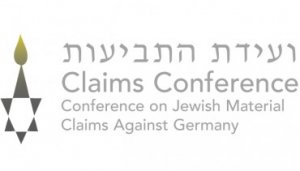Saul Kagan Fellowship in Advanced Shoah Studies

The Kagan Fellowship in Advanced Shoah Studies welcomes applications from PhD and Post-Doc candidates from around the world for funding for the September 2026-August 2027 academic year. The application portal is open. All application material must be submitted into the Fluxx portal system (see below) no later than: Friday, January 9, 2026
Review all instructions before applying.
Ph.D. Eligibility & instructions
Postdoctoral Eligibility & instructions
IMPORTANT: Before applying, please review the application instructions linked above for more information.
To apply, you must follow the steps below: (To meet the deadline, please factor in an extra week in your application process to ensure that all steps below, including portal approval steps, are complete.)
Create account in Fluxx Portal
Determine eligibility
Go into the Fluxx portal and click on Apply for a Grant, select Kagan Fellowship. Then, answer and save the eligibility questions. Remember to click SUBMIT when you are done. (NOTE: IF YOU DO NOT CLICK SUBMIT, YOUR REQUEST CANNOT BE CONSIDERED.) This is not an actual application, it is only an eligibility questionnaire. Please wait for an email from Fluxx that indicates you can proceed with your full application.
Login
Next, you will receive an email from Fluxx with login information. Once you receive the credentials, go back into Fluxx and create an account, enter your information, and select SAVE and SUBMIT. If you have technical problems, email: fluxxhelp@claimscon.org.
Apply
Follow the instructions in the portal to complete all application information and documents. Remember to select SAVE whenever you add information or upload documents so that your information is not lost.
Letters of Recommendation
The Fluxx portal will require you to enter your recommenders’ email addresses so that requests for recommendation letters and questionnaires are sent to them. Your recommenders will then receive the emailed requests automatically and will have to upload them through a portal link they will receive. Please do not collect recommendation letters, because you will not be able to submit them through the portal. Only your recommenders will be able to submit them. Please plan so that your recommenders have ample time to upload recommendation letters/questionnaires to the portal.
Important
WHEN ALL OF YOUR INFORMATION AND DOCUMENTS ARE IN THE PORTAL, REMEMBER TO CLICK SUBMIT. IF YOU DO NOT CLICK SUBMIT, YOUR APPLICATION CANNOT BE REVIEWED.
You will not be able to email any documents to the program administrator. Everything must go through the Fluxx portal. Applications arriving after the deadline will not be considered.
Get Help
For extra instructions, see: Logging into Fluxx, and for technical help, email: fluxxhelp@claimscon.org
For any (non-technical Fluxx) questions, please email the program administrator, Dr. Joanna Sliwa, at Joanna.Sliwa@claimscon.org.
